Live music in Ghana
By Eric Sunu Doe
Over the last century, the Ghanaian music industry despite brief periods of military interventions has had a largely active live music scene. This could in part be attributed to the incorporation of music in the daily life of the Ghanaian. As much as there are other aspects of Ghanaian music culture with live components, this overview discusses the live popular music scene examining its key players and how a lively music industry is sustained.
 Ghana has a thriving live scene. Photo: Asabaako festival gallery
Ghana has a thriving live scene. Photo: Asabaako festival gallery
Background
The emergence of a live popular music scene can be traced to the introduction and fusion of western musical elements with Ghanaian indigenous ones to create what is largely known as highlife music. Many research findings discuss highlife music through the performances of brass band type adaha/konkoma at community centers in rural areas, dance orchestra/bands in urban areas, trekking guitar band trios and concert parties who largely performed palmwine guitar music in the hinterlands. The dance bands usually performed in city hotels and gardens such as the Lisbon, Ambassador and Continental hotels in Accra; City hotel in Kumasi; Modek hotel at Cape Coast; and Princess Nightclub in Takoradi. Whereas guitar bands largely patronized in rural areas hired compound houses in villages where they performed and turned them into concert halls. These guitar bands later develop into larger bands and mounted bigger stages.
Ghana’s Independence in 1957 brought new energy to the country’s music as it became a tool in championing the cause. There is evidence that Dr Kwame Nkrumah[i] utilized highlife music for his campaigns and later helped build a viable popular music scene in the late 1950s. The Independent Square and sports stadia in the country hosted many of the national shows organized by the state. Jazz great Louis Armstrong and pop star Tina and Ike Turner performed at these spots over the course of Ghana’s history.
These developments changed with the military interventions in the late 1960s and 1970s. This is not to say that there was a total blackout of live band[ii] performances in other parts of the country, especially in rural areas, the performance haven for guitar bands. Eventually, the popular music scene in the late 1970s and early 1980s ground to a halt leading many musicians to seek greener pastures. The constant curfews meant live performances died out in the major cities and towns collapsing many bands. This paved way for disco and electronic music’s emergence on the scene[iii]. The 1990s saw a reemergence of a lively scene with the return to democracy and a stable economy attributed to the IMF’s[iv] Structural Adjustment. As a result many musicians returned home to open new avenues for live performances. For instance, in the late 1990s Abrantie Amakye Dede opened his Abrantie Spot at Lapaz, a suburb in Accra, which hosts live performances to date. The state also built a national theatre and an international conference center, which continues to host concerts.
Venues
It is evident thus far that there have been numerous performance locations throughout the country especially in the rural areas. There are regional cultural centers, which serve as the hub of neo-traditional activities. These centers sometimes hold events organized by popular musicians. Of these cultural centers situated in capital cities, the Kumasi, Tamale, Bolga, Koforidua and Accra centers are the busiest. Besides these centers, there are community centers and Jubilee parks around the country used for live music performances: the Kumasi Jubilee parks in the Ashanti region, and Koforidua Jackson Park and Amanokrom in the Eastern region.
Educational institutions are also used for performances. Spaces are created for artistes during entertainment events of both senior high school and university students.
Major hotels like Labadi Beach, Golden Tulip, and African Regent in Accra; Miklin and Golden Tulip in Kumasi provide spaces for small combo bands to perform during weekends. Drinking spots[v] also hosts live band music mostly by amateur groups like the Abrantie Spot, +233 Bar & Grill, Chez Afrique, Republic bar in Accra, Echoes Valley, +2 Pub & Kitchen in Kumasi, Hans Cottage in Cape Coast, Gold Spot in Takoradi etc.
Ghana’s two big auditoriums host all major indoor events: the National Theatre and the International Conference Centre. Open air spaces include major stadia – Baba Yara, Sekondi, Accra and Tamale sports stadia – as well as the Independence Square.
Some foreign cultural organisations like Alliance Française and Goethe Institut in Accra have established open air spaces that host smaller concerts. There are also, in Accra, a number of concerts held at the beaches along the coast.
Events and promotions
According to a KPMG report[vi], the various shows organized in Ghana are live performances, traditional shows, music competitions, concert parties, street festivals, music awards etc. with Ghanaian artists dominating. The Ghana Music Awards (GMA) appears to be the biggest annual event but besides the GMAs, there is the Chale Wote Street Arts Festival, Bands Alive, Mentor, Stars of the Future, MTN HitMaker, Vodafone Icons reality live TV shows that keep Ghanaian musicians busy. The report also notes that some events and concerts serve as promotional platforms for local music industry operators including telecommunication companies. These concerts often occur on occasions such as Christmas, Easter, Ramadan as well as national holidays.
Music festivals over the last few years have gradually become a part of the live scene in Ghana. There is the Afro-Beat, the Highlife, Hi-Vibe, the Stanbic Jazz festival and the Ghana Music Awards festival[vii].
Private radio stations have also joined in the organization of annual music events over the last six years. There is the Music of Ghanaian Origin (MOGO), which is organized by CITI FM, Adom Praiz by Adom FM, TV3’s Festival train etc. Also a few big artists often organize concerts: Kojo Antwi’s 24th Night show, Samini’s regional Kaakie it up tour, Stonebwoy’s Bhimnation concert etc. Besides these, indigenous festivals of different ethnic areas in the country also create spaces where popular artistes are invited.
International artists touring Ghana
As noted earlier, Ghana has seen an upsurge of international acts performing in the country. Although dominated by Nigerian artistes who frequent the GMA, there have been other nationalities. Recently Lauryn Hill and Mavado performed in Ghana; the Stanbic Jazz festival and the Accra Jazz festival featured international artistes including Earl Klugh and Colter Harper.
Gospel stars Alvin Slaughter, Kirk Franklin, Cece Winans and Ron Kenoly have shared the stage with local stars. American hip-hop artist T-pain will perform late 2015.
Challenges
The music industry in Ghana currently lacks proper structure and professionals as evident in the report submitted by KPMG to the Musicians Union of Ghana (MUSIGA). Touring circuits which once were exploited by earlier musicians appear to have collapsed with many musicians now relying on record sales and occasional invitation to perform at events as source of revenue.
Again, the Ghanaian music industry is contending with issues of quality, packaging, marketing, promotion, distribution, piracy, globalization, digitalization and an identity as is the case in Uganda. Whereas MUSIGA is quite prominent on some of these matters, and have successfully engaged the government into enacting policies that benefits the creative industry, they are largely seen as a disorganized group engulfed in internal wrangling.
Bibliography
Collins, John. 2008, Nkrumah and Highlife cited in The New Legon Observer vol.2 no.7 Collins, John. 1985. African Pop Roots: The Inside Rhythms of Africa. London: W. Foulsham & Co. Ltd. Collins, John. 1996. ‘Highlife Time,’ Anansesem Publications ltd Graham, Ronnie. 1989. Stern’s Guide to Contemporary African Music, Vol. 1. London: Pluto Press. Kraus John. 1991. The Struggle over Structural Adjustment in Ghana, Africa Today, Vol. 38, No. 4, (Ghana: The Process of Political and Economic Change 1991-1992), pp.19-37 KPMG 2014 report A Comprehensive Study of the Music Sector in Ghana, (commissioned by the Musicians Union of Ghana and funded by the Government of Ghana with support by World Bank) Sunu Doe, Eric. 2011. Burger highlife: A Study of a Cross-Cultural Phenomenon. An unpublished MPhil thesis [i] Dr Kwame Nkrumah was the first president of Ghana who employed highlife music for his campaigns. He will later establish many state owned bands and encourage other institutions to do same. Examples of some of the bands he established included the Builders and workers Brigade. The Ghana Cocoa Board established a band of their own- Sweet Beans and Sweet Talks. See Collins (2008) for detailed discussion on highlife music and politics in Ghana. [ii] In those days live popular music performances were referred to as live bands. [iii] See Sunu Doe (2011) for a detailed discussion on the disco influence burger highlife music. [iv] Refers to the International Monetary Fund. See Kraus (1991) [v] In Ghana, Drinking Bars are referred to as Drinking Spots or Spots for short. [vi] This report was commission by the Musicians Union of Ghana and funded by the government of Ghana to provide a comprehensive study of the music sector in Ghana. It was completed in February 2014 and has since been ratified [vii] This is a recent development where the GMA has now been turned into a music festival


























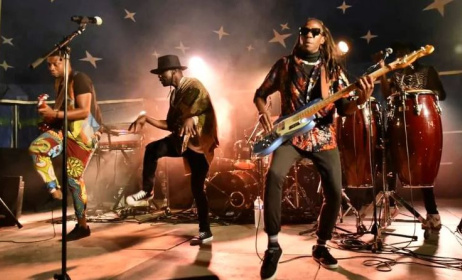
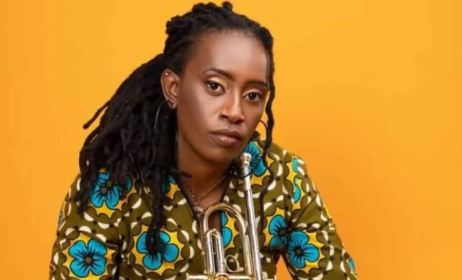


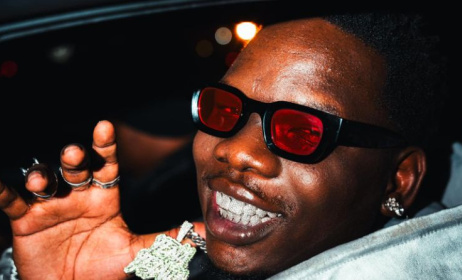
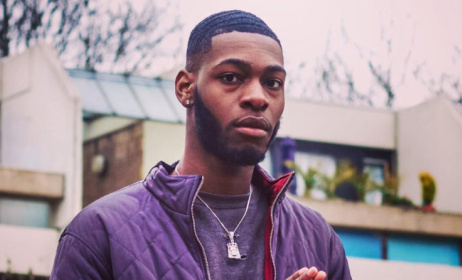

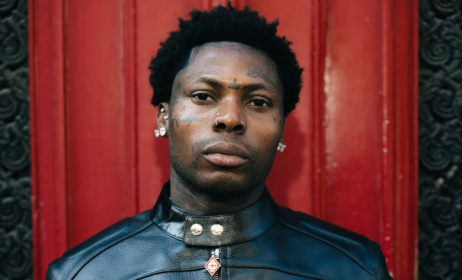
Comments
Log in or register to post comments